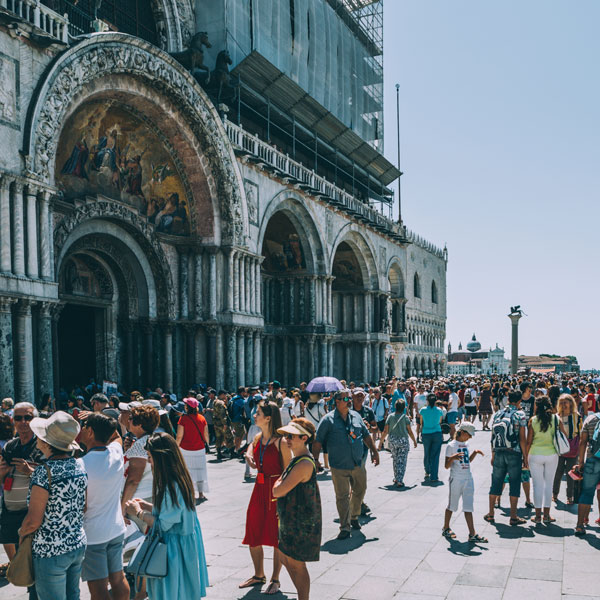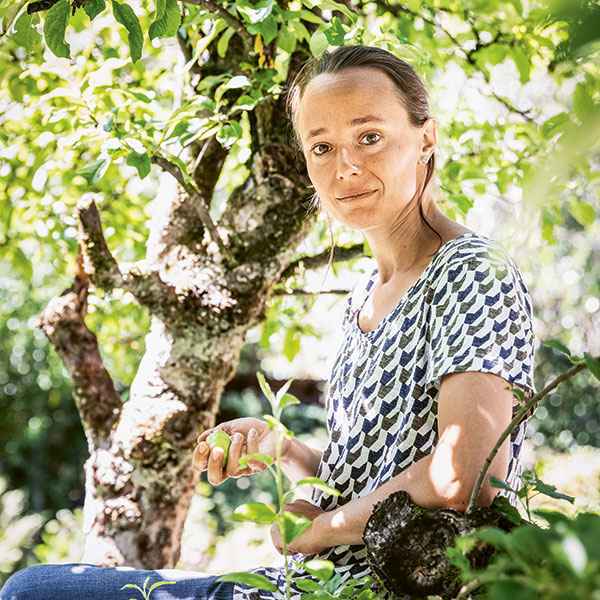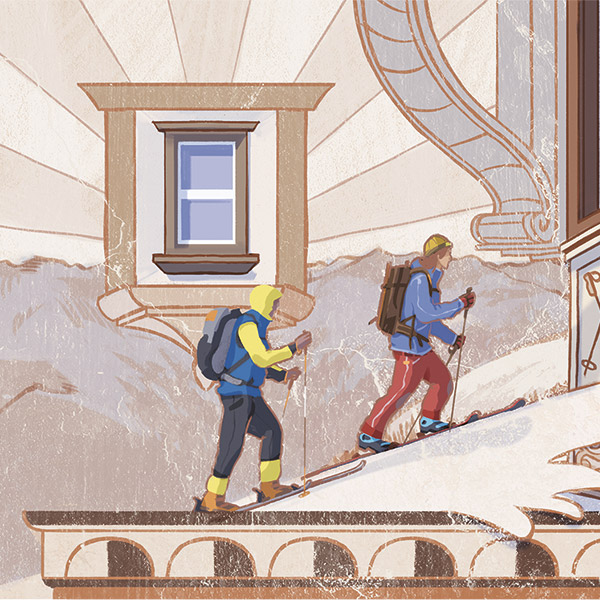Feature: The tourism of the future
“Tourism is the industry of beautiful appearances”
Valentin Groebner is a historian adept at recognising discrepancies in the PR surrounding issues of sustainability, and he also looks askance at so-called niche offerings. We spoke to him about greenwashing.

Photo: Franca Pedrazzetti
Valentin Groebner, tourism in the Alps is supposedly becoming more sustainable. Travel agencies and those involved in regional planning are campaigning for it. Is this a new phenomenon?
In a sense, tourism right from the start was an industry of guilty conscience. Way back in 1850, the Englishman John Ruskin complained about the many visitors from all over the world who were irrevocably destroying the beauty of the Alps. The big hotels were disfiguring unspoilt landscapes, he said. Complaints like this might remain media-effective, but they only ever result in yet more people wanting to see endangered sights. This feeling of ‘I have to see it before it’s too late’ is one of the great drivers of tourism.
So are the loss of snow and the receding glaciers actually good for alpine tourism?
In February 2023 I was in Andermatt, where the Egyptian property company Orascom is building a new tourist village. The average price for holiday apartments there is just over two million francs at present. The vendors imply that it will allow you to purchase a piece of snow security – in other words, they’re selling ‘time’ by promising a place where the skiing holidays of the past will still be available in the future. The newly built part of the village is a ‘retroland’ that’s being advertised with idyllic images of a 1960s family fondue. They’re selling a past that never existed, and promising to extend it into the future.
What do you think of initiatives such as Switzerland Tourism’s ‘Swisstainable’ campaign?
That campaign was presented at a conference in Rome by a representative of Switzerland Tourism who showed images of picturesque railways in the canton of Graubünden and of trains that run on renewable electricity. But she didn’t show the artificial snow-making systems that use immense amounts of energy and water. Switzerland Tourism has a performance mandate: its task is to increase the number of overnight stays in the country. Its CEO has publicly declared that they want to attract more guests from overseas because they spend significantly more money per person. But these guests unsurprisingly arrive by plane – and it’s when people arrive and depart again that most CO2 emissions are generated.
But tourism is an important source of income for many Swiss regions, and sustainability is about more than just caring for Nature.
The tourism organisations insist that the prosperity of entire regions is dependent on tourism, for better or worse. But is that really true? It’s property owners who are the principal beneficiaries of tourist development in any region. And since the very dawn of tourism it’s depended on low-paid, seasonal labour. Today it’s Tamils working in the kitchens and Romanians working as waiters and waitresses. They don’t feature in the glossy self-depictions of the tourism industry. Tourism is the industry of beautiful appearances, which is why it has to make its own labour conditions invisible.
The Alps do offer alternatives to mass tourism – such as the ‘Mountaineering Villages Initiative’ that offers experiences of both Nature and culture.
There’s nothing new about developing niche offerings like that. The ‘alternative’ trends of the 1970s invented new forms of Alpine tourism. Hikers began travelling by train instead of car, and spent their nights in the disused school buildings of abandoned mountain villages. Ultimately, even more people came to the Alps than had been the case before. Economists would say that saturated markets always favour diversification: If we wish to avoid tedium, we have to keep offering something new, all the time. But such offerings are not scalable, and the extant infrastructure swiftly reaches its limits, especially in niche markets.




